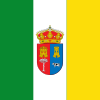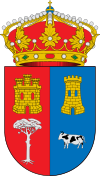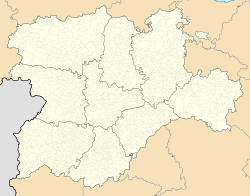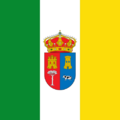Navahondilla facts for kids
Quick facts for kids
Navahondilla
|
|||
|---|---|---|---|
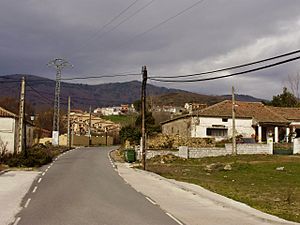
View of the Town of Navahondilla
|
|||
|
|||
| Country | |||
| Autonomous community | |||
| Province | |||
| Municipality | Navahondilla | ||
| Area | |||
| • Total | 22,07 km2 (852 sq mi) | ||
| Elevation | 741 m (2,431 ft) | ||
| Population
(2018)
|
|||
| • Total | 310 | ||
| • Density | 15.5/km2 (40/sq mi) | ||
| Time zone | UTC+1 (CET) | ||
| • Summer (DST) | UTC+2 (CEST) | ||
Navahondilla is a small town, also known as a "municipality," located in the province of Ávila, within the Castile and León region of Spain. It is a quiet place where about 310 people lived in 2018.
Contents
Navahondilla is found in the central part of Spain. It is part of the Ávila province, which is known for its beautiful natural areas. The town sits at an elevation of 741 meters (about 2,431 feet) above sea level. This means it is located in a somewhat elevated area, which often brings cooler temperatures and scenic views.
Natural Surroundings
The area around Navahondilla is rich in nature. It is close to the Sierra de Gredos, a large mountain range. This region is famous for its diverse plants and animals. You can find many types of trees, like pines and oaks, and various wildflowers. The landscape includes mountains, valleys, and small streams.
Life in the Town
Life in Navahondilla is typical of many small Spanish towns. The community is close-knit, and people often know each other well. The main activities in the town usually involve farming and local services. Some people might also work in nearby larger towns or in tourism, as the natural beauty attracts visitors.
Population and Size
The municipality of Navahondilla covers an area of about 22.07 square kilometers (about 8.5 square miles). With a population of around 310 people, it is a small community. This means there are not many people living in each square kilometer, making it a peaceful place with plenty of open space.
Local Traditions and Festivals
Like many towns in Spain, Navahondilla likely celebrates local festivals throughout the year. These events are important for bringing the community together. They often include traditional music, dancing, special foods, and religious processions. These festivals are a great way to experience the local culture and history.
Images for kids
See also
 In Spanish: Navahondilla para niños
In Spanish: Navahondilla para niños
 | Misty Copeland |
 | Raven Wilkinson |
 | Debra Austin |
 | Aesha Ash |


